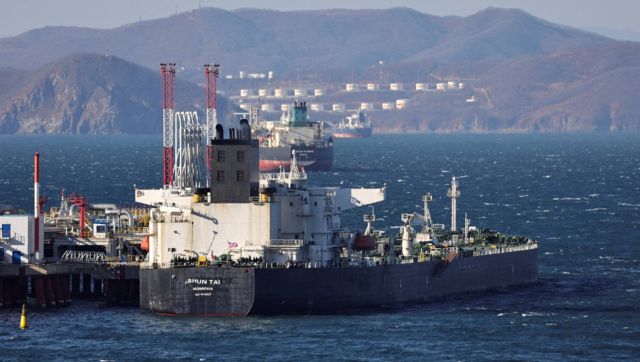Since Russia put boots on ground in Ukraine last year, the European Union has been up in arms against the Kremlin for the invasion, slapping a slew of US-led sanctions, yet after nealry two years of the “limited military operation” the Western Bloc’s imports of Russian LNG have gone up by almost 40 per cent. More than half of the Russian Liquified Natural Gas (LNG) on the market was bought by the bloc’s member states in the first seven months of 2023, an analysis by Kpler revealed. The member states imported 22m cubic metres of Russian gas during January-July 2023. Last year the amount was 15m for the same period. Spain and Belgium, the doorways to LNG supply in the EU, are now just behind China as the second and third biggest buyers of Russian LNG, respectively. “EU countries now buy the majority of Russia’s supply, propping up one of the Kremlin’s most important sources of revenue,” said Jonathan Noronha-Gant, a senior fossil fuel campaigner at the anti-corruption group Global Witness, which did the analysis. Why are the EU’s imports of Russian LNG going up? After the war in Ukraine started in February last year, the European Union, whose most of member states depended on Russian gas for energy, scurried to impose a flurry of sanctions on Russia. The Kremlin responded by turning the taps of the gas pipeline that brought the much-needed natural gas to Europe. To compensate for the shutting of pipeline, the shipments of LNG from around the world, including Russia went up. This appears to be in stark contrast to the commitments the EU states made to wean off Russian gas and look for sources elsewhere. The bloc sanctioned importing Russian oil and coal in February 2022. Russian enterprises were also banned from storing gas in the EU and investment in Russian energy sources was also prohibited. In March 2023, the EU asked the members and private players to stop buying from Russia. Joint action Germany declared itself independent of Russian oil in January. It now sources gas from around the world, including the US. The Belgian government says that their Russian gas consumption is only 2.8 per cent. However, the ports of Zeebrugge and Antwerp are the gateway to 18 markets, including France and Germany, and most of the exports are done to the neighbours. The Belgian government, according to the Guardian, wanted to stop Russian supplies altogether. But there are six gas storage terminals just a day’s distance from the two ports. If Belgium stops Russian supplies, it would simply go to the neighbours. Belgian government decided that the only effective way to mitigate the problem was EU-wide sanctions. Spain also argues the same. “Until such an agreement is in place, we’ve asked operators not to renew their LNG purchase contracts with Russia,” a Spanish source was quoted as saying by the Guardian. The big traditional operators have told the Spanish that they have not increased nor renewed their agreements. “If that is the case, it’s most likely that what’s happening is that other traders have decided that it’s convenient for them to store in the EU – mainly in Belgium and Spain – because of the regasification and port unloading infrastructures.”
The EU member states imported 22m cubic metres of Russian gas during January-July 2023. Last year the amount was 15m for the same period
Advertisement
End of Article
Written by Rakshit Sharma
Rakshit is a sub editor at Firstpost. He covers war, conflict, and international affairs. When not on the desk, he can be found either reading/listening to poetry or moving the weights. see more


)

)
)
)
)
)
)
)
)



